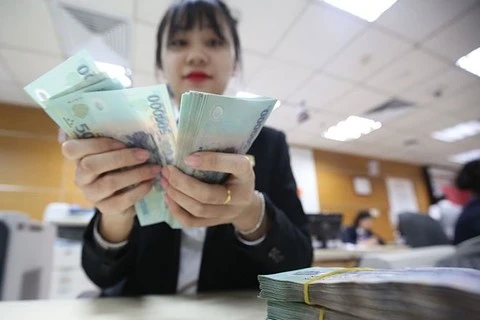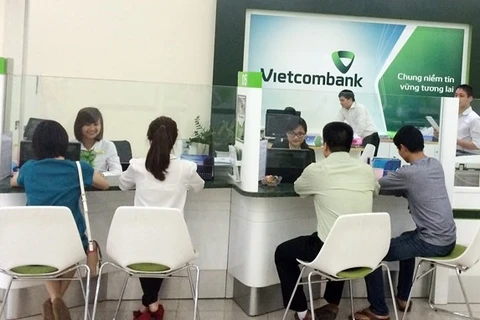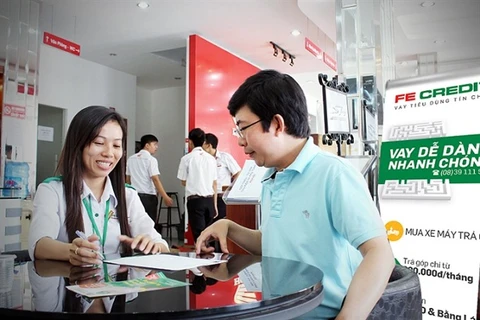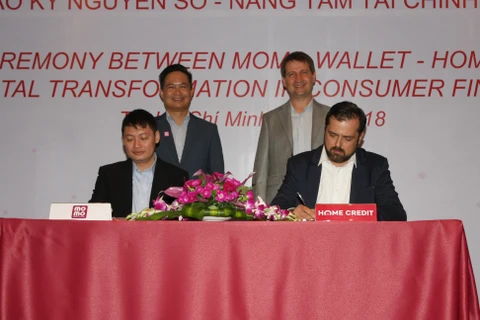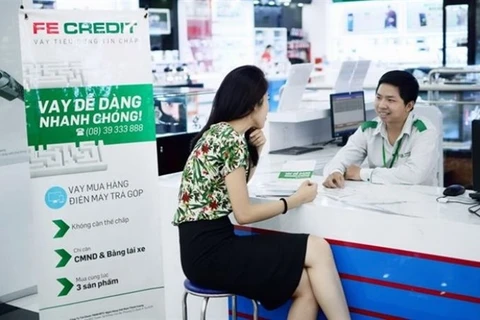 The State Bank of Vietnam hosts an online conference on lending for agricultural and rural development and solutions to prevent usury on December 26 (Photo: courtesy of SBV)
The State Bank of Vietnam hosts an online conference on lending for agricultural and rural development and solutions to prevent usury on December 26 (Photo: courtesy of SBV) Hanoi (VNA) - Increasing the limits of unsecured loans given by banks will prevent people from approaching loan sharks, an online conference hosted by the State Bank of Vietnam (SBV) heard on December 26.
The conference focused on discussing the implementation of Decree 116 issued by the Prime Minister on credit policies for agricultural and rural development and measures to tackle loan-sharking.
Dao Minh Tu, the SBV’s deputy governor, said agriculture and rural development is a sector enjoying credit priorities since it plays a key role in socio-economic development.
By the end of last November, outstanding loans to agriculture and rural areas was worth 1.69 quadrillion VND (72.6 billion USD), or 24 percent of total outstanding loans in the banking system, according to the central bank.
The figure represents a 14.5 percent increase year-on-year, higher than the overall credit growth rate.
Some 70 credit institutions and more than 1,100 people’s credit funds and social policy banks lend to agriculture and rural areas.
The SBV has recommended that the Government should adopt policies to promote lending to this sector to enable the implementation of the 2013 agriculture restructuring plan under Decision 899.
For instance, Decree 116 dated September 7, 2018, which amended agricultural and rural credit policies, has helped farmers and other people in rural areas borrow from banks.
One of its major provisions is to double credit limits for farmers who seek loans without assets to mortgage.
Farming households and co-operatives in rural areas can now get unsecured loans of up to 200 million VND compared to the previous 100 million VND.
For those not living in rural areas but running farming businesses in rural areas, the maximum loan has doubled to 100 million VND.
Tu said: “Decree 116 together with mechanisms and solutions offered by the banking system has responded in a timely fashion to demand for capital for consumption, manufacturing and business activities from individuals and enterprises.
“It has also enhanced poor and low-income people’s access to credit in rural and remote areas, reducing the number of people looking for black credit.” Black credit refers to usury.
But loan sharks operate in a sophisticated manner in southern and central highlands provinces, which severely affects the socio-economic development of these regions, he said.
“If credit institutions do not strictly control and monitor customers’ use of loans, it might lead to them using the loans illegally, enabling black credit to increase and adversely affect the banking system.”
According to unofficial statistics from the Ministry of Public Security quoted at the conference, more than 7,600 crimes related to usury have been uncovered in the past four years, including 56 murders.
The police have busted 124 criminal gangs and arrested 831 people involved in loan-sharking and illegal debt collection.
Reports from the SBV show that the banking sector has found 218 cases of black credit involving 117 billion VND in 16 provinces and cities.
Tu said to prevent loan-sharking requires a coordinated effort by the banking system, authorities, local administrations and social organisations across the country.
The SBV has issued regulations for consumer lending by finance companies in rural and remote areas to prevent usury.
There are 27 non-bank credit institutions, including financial companies and finance leasing companies, with outstanding loans of more than 131 trillion VND, including 90 trillion VND worth of consumer loans.
The central bank also requires credit institutions, especially in remote and rural areas, to expand people’s access to banking services by simplifying lending procedures and diversifying banking products.-VNA
